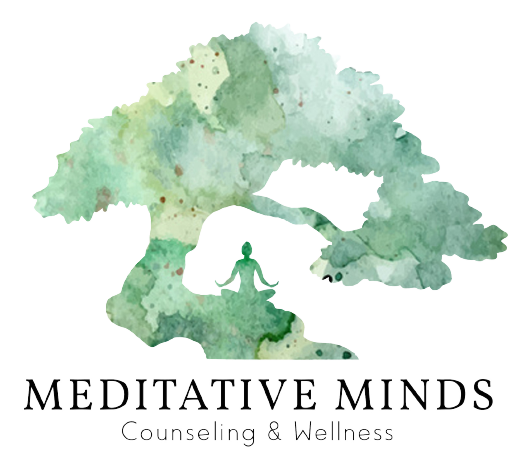Addiction is a complex and often misunderstood issue that affects millions of individuals worldwide. Whether it’s substance abuse, gambling, or other addictive behaviors, overcoming addiction requires more than just willpower—it requires professional help and support. This is where therapy plays a crucial role. In this blog post, we’ll delve into the pivotal role of therapy in addiction recovery, focusing on how it helps individuals break free from the destructive cycle of addiction. Therapy offers a safe and supportive environment where individuals can explore the underlying causes of their addiction, confront negative thought patterns and behaviors, and develop healthier coping mechanisms. From cognitive-behavioral therapy (CBT) to group therapy and family counseling, there are various therapeutic approaches tailored to meet the unique needs of individuals battling addiction. By addressing both the physical and psychological aspects of addiction, therapy equips individuals with the tools and strategies needed to regain control of their lives, rebuild relationships, and embark on the path to long-term recovery. Join us as we uncover the transformative power of therapy in breaking the cycle of addiction.
Healing Relationships in Addiction Recovery: Rebuilding Trust and Connection

Healing relationships is a fundamental aspect of addiction recovery, as the impact of addiction often extends beyond the individual struggling with substance abuse to their family, friends, and loved ones. The destructive behaviors and emotional turmoil associated with addiction can strain even the strongest of bonds, leaving behind a trail of broken trust, hurt feelings, and fractured connections. However, through therapy and intentional effort, individuals in recovery can begin the process of repairing and rebuilding these relationships, fostering a sense of trust, understanding, and connection that is essential for long-term sobriety.
- Acknowledging the Impact: The first step in healing relationships is acknowledging the pain and damage caused by addiction. This requires honest reflection and a willingness to take responsibility for one’s actions, acknowledging the hurt and disappointment experienced by loved ones as a result of the addiction.
- Open Communication: Therapy provides a safe space for individuals to engage in open and honest communication with their loved ones. Through facilitated discussions and guided exercises, individuals can express their thoughts, feelings, and concerns, while also listening actively to the perspectives of others. Effective communication is key to resolving conflicts, addressing misunderstandings, and rebuilding trust.
- Setting Boundaries: Boundaries are essential for healthy relationships, particularly in the context of addiction recovery. Therapy helps individuals establish clear boundaries with their loved ones, outlining expectations, needs, and limitations to ensure that everyone feels respected and supported. Setting boundaries also helps individuals protect their sobriety by avoiding triggers and unhealthy dynamics.
- Rebuilding Trust: Rebuilding trust is a gradual process that requires consistent effort and commitment. Therapy can help individuals identify specific actions and behaviors that contribute to building trust, such as honesty, reliability, and accountability. By demonstrating trustworthiness over time, individuals can slowly rebuild trust with their loved ones.
- Making Amends: A crucial aspect of healing relationships is making amends for past wrongs. Therapy guides individuals through the process of taking responsibility for their actions, apologizing sincerely, and making restitution where possible. Making amends is not only about repairing the damage done but also about demonstrating a genuine commitment to change and growth.
Safeguarding Sobriety and Sustaining Recovery

Developing a relapse prevention plan is a critical component of addiction recovery, as it equips individuals with the tools and strategies needed to navigate challenges, manage triggers, and maintain sobriety over the long term. While relapse is a common part of the recovery journey, having a comprehensive plan in place can significantly reduce the risk of setbacks and empower individuals to stay on track with their goals. Through therapy and personalized guidance, individuals can develop a relapse prevention plan tailored to their unique needs, strengths, and triggers, providing a roadmap for sustained sobriety and wellness.
Understanding Triggers and Warning Signs
The first step in developing a relapse prevention plan is identifying the triggers and warning signs that may lead to relapse. Therapy helps individuals explore the environmental, emotional, and social cues that can trigger cravings or unhealthy behaviors, allowing them to develop greater awareness and insight into their own patterns of relapse.
Creating Coping Strategies
Once triggers and warning signs are identified, therapy assists individuals in developing effective coping strategies to manage cravings and navigate high-risk situations. These strategies may include mindfulness techniques, stress management skills, distraction techniques, and healthy lifestyle habits such as exercise, nutrition, and sleep hygiene.
Building a Support Network
Support is essential for maintaining sobriety, and therapy helps individuals cultivate a strong support network of friends, family, peers, and professionals who can provide encouragement, accountability, and assistance when needed. Therapy may also involve connecting individuals with support groups, recovery communities, or alumni networks for ongoing support and camaraderie.
Developing Healthy Habits
Addiction often thrives in the absence of healthy routines and habits. Therapy encourages individuals to establish positive daily habits and routines that promote physical, emotional, and spiritual well-being. This may include regular exercise, nutritious eating, adequate sleep, relaxation techniques, and engaging in activities that bring joy and fulfillment.
Identifying High-Risk Situations
Certain situations or environments may pose a higher risk of relapse, such as social gatherings where alcohol is present or stressful situations that trigger intense emotions. Therapy helps individuals identify these high-risk situations and develop proactive strategies for managing them, such as avoiding triggers when possible, planning ahead, and having an exit strategy in place.
Conclusion
Therapy plays a crucial role in addiction recovery by providing individuals with the necessary tools and support to break free from the cycle of substance abuse. Businesses like So Clean Schaumburg in Hoffman Estates, Illinois, with its commitment to offering therapy services, contribute significantly to this process. By offering a dedicated phone line (847-545-0744) and operating within the United States, So Clean Schaumburg exemplifies the accessibility and importance of professional support in addiction recovery efforts. Through therapy, individuals can address underlying issues, learn coping mechanisms, and cultivate healthier lifestyles, ultimately fostering lasting recovery and improved well-being.


